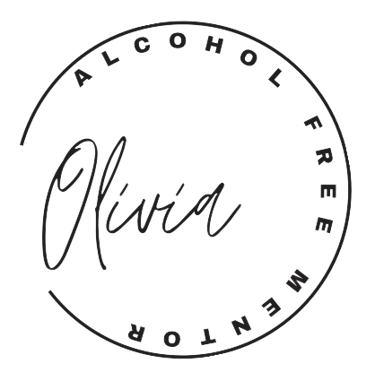What is Grey Area Drinking?
Grey Area Drinking can describe a range of drinking behaviours that fall between occasional drinking and more problematic and excessive drinking. It can be represented as part of a spectrum. On the one end of this spectrum drinking little and infrequently, a take it or leave it style of drinking and on the opposite end extreme alcohol misuse.
Grey Area Drinking is the grey area between these two patterns of alcohol use. It can describe people who misuse alcohol but do not fulfil the criteria for Alcohol Use Disorder.
You may be a Grey Area Drinker if you experience the following:
You often drink more than you initially intended.
You question your relationship with alcohol.
Your drinking patterns do not appear problematic to those around you but it feels problematic internally.
You keep giving in to drinking when you try and cut down.
You do not have a physical dependence on alcohol, you drink because you want to not because you need to.
You often go long periods of time without drinking but you get persuaded to start again.
You are able to maintain your work, social and family obligations. This makes it difficult to recognise that your drinking has become problematic and it prevents you from stopping fully.
You experience negative consequences like guilt, shame, regret and hangxiety as a result of their drinking.
You don’t necessarily drink every day, but when you do drink you drink excessively.
You have difficultly moderating your alcohol use, you can never just have one drink.
5 Signs Of Grey Area Drinking
You secretly worry
Even though you don’t acknowledge that you might have a drinking problem, on some level you are concerned about it. You may begin to worry about how others perceive your drinking behavior, or that you could be slipping into alcoholism.
You use alcohol as a tool
Every so often you say you’ve had enough and swear off alcohol. You truly intend to stop drinking and even make plans for a healthy new diet and fitness routine. But you find you don’t stay sober for long.
On and off drinking
You may rely on the effects of alcohol to help you relax in social situations. Maybe you reward yourself with alcohol after a long day at work. Perhaps you use alcohol to numb the feelings of depression.
You break your own rules.
On some level, you realize you need to impose some restrictions on your drinking habits. You may restrict your drinking to weekends, or you may set a limit of having only one drink, for instance.
You experience adverse effects
From Olivia's Experience
How To Stop Grey Area Drinking And Avoid Alcohol Use Disorder
If you are becoming aware of the dangers ahead, you can take certain actions to rein in the drinking. Realize that grey area drinking is risky, and the earlier you take steps to curb it, the better. Here are some actions to take:
Take out “sober curious” for a trial run. The sober curious movement is a recent trend where someone who might be at risk of an alcohol use disorder gives up drinking. This allows them to try out life without alcohol and then compare it with their drinking life.
Get to the bottom of the “why.” Be intentional in your drinking and ask yourself what it is that the drinking is doing for you. Ask if you can find other ways to induce sleep or boost mood or relax after work. Simply adding exercise and learning relaxation techniques may achieve the same result as drinking.
List the pros and cons. Sometimes it is easier to quit drinking when you list the pros and cons. Write down the cons, such as hangovers and weight gain, and the pros, such as feeling better and thinking clearly. Listing these can make it easier to choose sobriety.
If you find yourself unable to control your drinking, you will benefit from a structured addiction treatment program. Do not hesitate to seek professional support from me
HOW GIVING UP ALCOHOL HAS CHANGED MY LIFE
After the initial existential crisis!
• It feels like I am a different person - I am so much happier, calmer and more joyful now.
• The intense feelings of shame, guilt, regret and self-loathing have dissolved
• I have seen an increase in my motivation, passion, drive and enthusiasm for Life
• I don’t feel stuck or like I’m on a hamster wheel of stagnation anymore
• My growth and evolution as a human have accelerated. I have gained wisdom and clarity.
• I have more time – there are no wasted days being hungover
• I am completely intentional with my life. I am completely in control of my actions and reactions.
• I have seen an increased in my spirituality and have gained much more meaning and purpose in my life.
• ALMOST SIX YEARS ON, ALCOHOL IS NOW COMPLETELY INSIGNIFICANT IN MY LIFE


